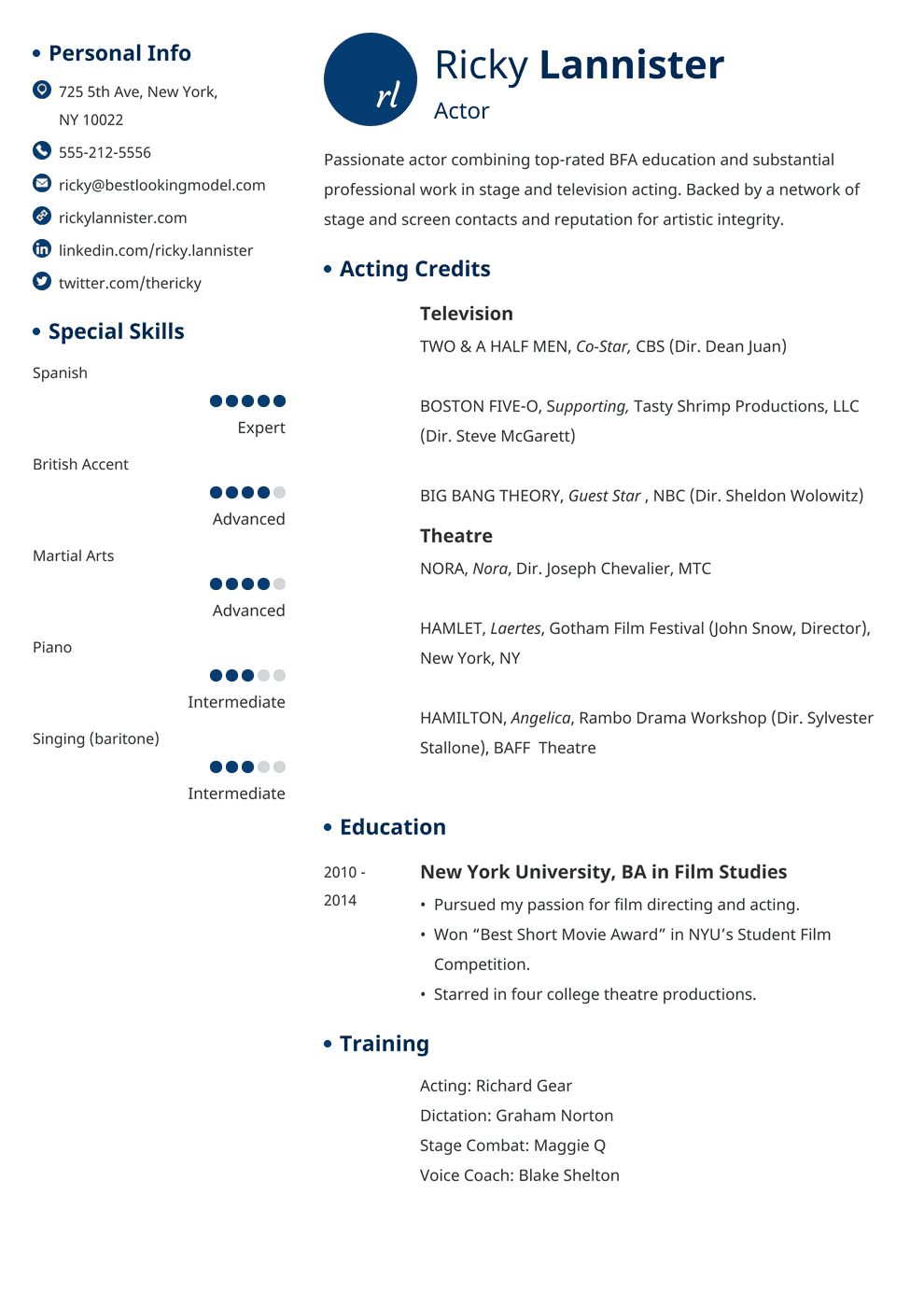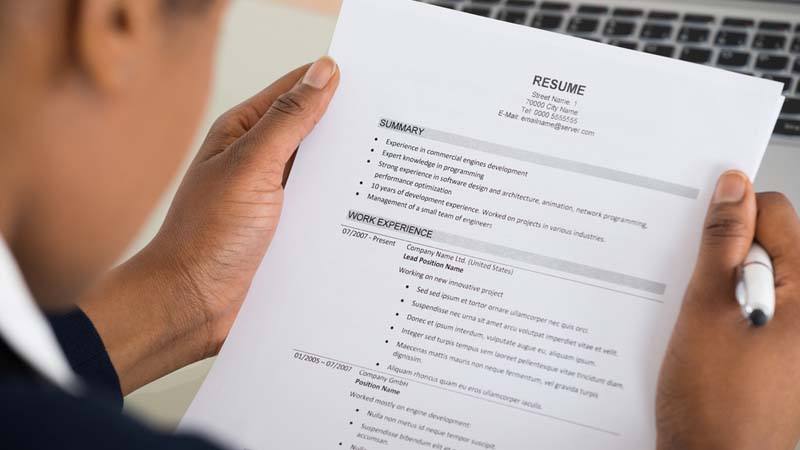Everything you need to know about getting started in the acting industry can be found on Google and in numerous articles online. However, when applying for that first acting job, all those resume tips and tricks get a little confusing.
- What does an actor’s resume look like?
- Do I need one at all?
- Does my resume have to be PDF-ready?
- What about references?
- Do I also need a cover letter?
These are just some questions that keep popping up whenever you search for “acting resume templates.” We are here today to answer all these questions and more regarding this topic. An actor’s resume is an important document where you can showcase your skills as an actor and your past work experience in the field. Let’s begin!
When is an Actor’s Resume Important?
 Before we dive into the specifics of an actor’s resume, let’s first understand when and where we should be using a resume in the first place. Resumes and cover letters are standard documents you will need to fill in the gaps in your acting career. If you ever find yourself in a situation where you need to apply for an acting job where you don’t have the relevant experience to showcase, you will need to create your acting resume. The other scenario where you will need a resume is if you want to make a career change in the acting industry. In such a case, your resume needs to be up-to-date with your latest experience and skills.
Before we dive into the specifics of an actor’s resume, let’s first understand when and where we should be using a resume in the first place. Resumes and cover letters are standard documents you will need to fill in the gaps in your acting career. If you ever find yourself in a situation where you need to apply for an acting job where you don’t have the relevant experience to showcase, you will need to create your acting resume. The other scenario where you will need a resume is if you want to make a career change in the acting industry. In such a case, your resume needs to be up-to-date with your latest experience and skills.
Read Also: Can a 13-year-old be a voice actor
When To Use An Actor’s Resume
We have already discussed when and why you should use an actor’s resume. The next logical question is, when shouldn’t you use a summary? When applying for an acting job that is a non-speaking or non-on-screen role, you don’t have to use an overview. Your resume will showcase your skills as an actor and your past work experience in the field. So, if you are applying for a role where you don’t need to be speaking or on-screen, there is no point in putting all your effort into creating an acting resume.
How Does An Acting Resume Look Like?
 We already know when to use an actor’s resume and when not to. Let’s now talk about what an actor’s resume looks like. Your resume has to be no less than one full page. We don’t recommend going beyond two pages. All the text on your resume should be in a bold, legible font like Times New Roman so that it is easy to read. The font size should be 14 or 16, and all the paragraphs should be left-aligned. There are no strict rules for formatting an actor’s resume. We advise you to follow these simple rules: Keep it simple and neat. A resume should be visually appealing and should stand out from the rest.
We already know when to use an actor’s resume and when not to. Let’s now talk about what an actor’s resume looks like. Your resume has to be no less than one full page. We don’t recommend going beyond two pages. All the text on your resume should be in a bold, legible font like Times New Roman so that it is easy to read. The font size should be 14 or 16, and all the paragraphs should be left-aligned. There are no strict rules for formatting an actor’s resume. We advise you to follow these simple rules: Keep it simple and neat. A resume should be visually appealing and should stand out from the rest.
Read Also: How long do you study at a university to become an actor?
Tips For Creating Your First Acting Resume
As we have seen, creating an actor’s resume is no easy task. You will have to go through several drafts before you come up with a resume that best represents you. So, before you start filling your resume with lines from your best on-screen performances, here are some tips to help you create your first acting resume. Start with the basics – First, you must decide what type of resume you are making. Are you going to make an objective resume or a traditional one? Focus on your skills – Your resume is the place where you can showcase your skills as an actor. So, put your best foot forward and include skills like improvisation, public speaking, and language, to name a few. Keep it short – As we mentioned, your resume shouldn’t be longer than one full page. Put the most relevant information and nothing else. Make it legible – Your resume should be clean, neat, and easy to read. Avoid making it too fancy, as it will become unreadable.
Conclusion
Your acting resume is the first thing that an employer will see when you apply for a job as an actor. So, you must ensure that it looks professional and showcases your best skills. Your resume is the place to put the most critical information about your previous experience, skills, and education. Make sure that all the news on your resume is accurate and up-to-date. The last thing you want to do is have your potential employer call you out for lying on your resume.
